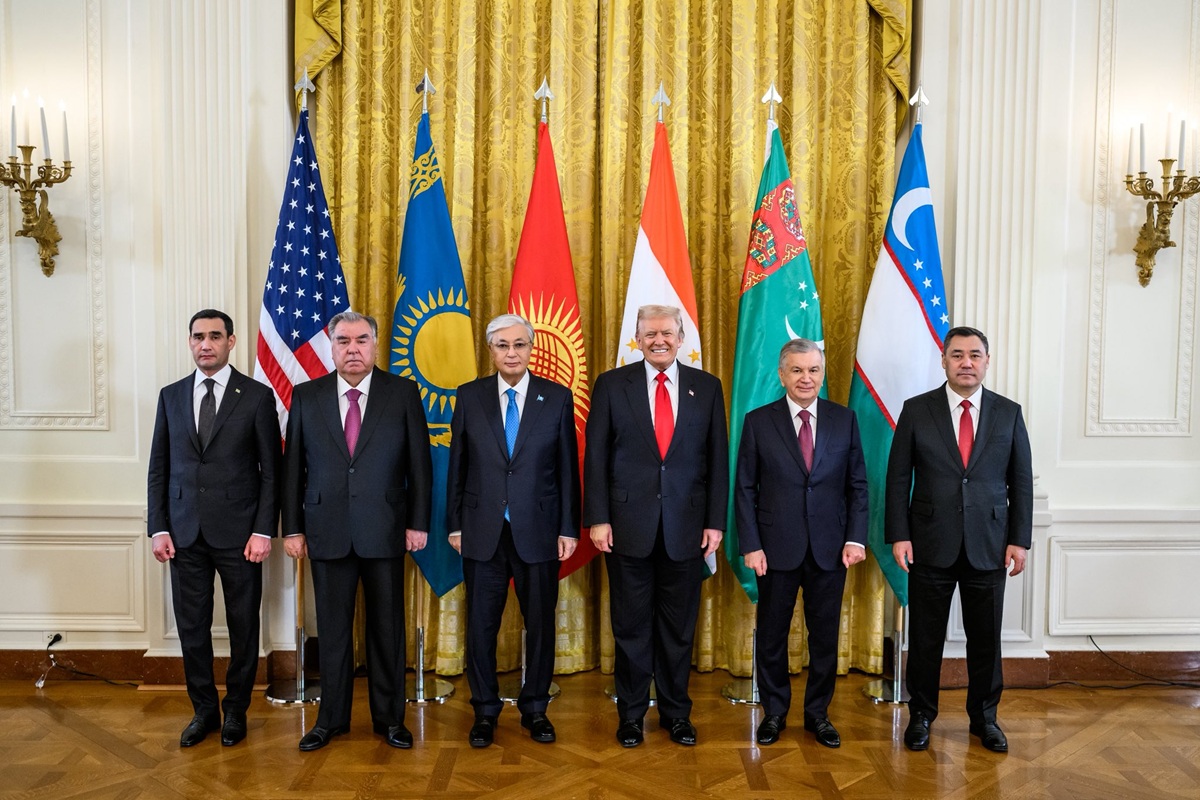Washington and Central Asia after the summit with Trump
The trade agreements signed at the White House on rare earths and other sectors seem to focus more on US economic interests than on geopolitical balances. And even the Kremlin, which in the past had shown some impatience with these contacts, this time expressed great acquiescence.
Washington (AsiaNews) - The meeting in Washington between Donald Trump and the presidents of Central Asian countries in the “5+1” format was described by the US president himself as “a correction of the mistakes made by my predecessors, who ignored this region.”
In reality, interest in the “middle zone” of the various trade corridors has become a priority, especially in the last year, partly as a result of the new balance imposed by Trump's erratic policy, with the imposition of universal tariffs and confrontations at all levels, especially with the great power of China.
One of the most sensitive issues concerns mineral raw materials, with China holding a large share of the indispensable “rare earths” that Central Asia is rich in, but which are very difficult to extract, process, and transport.
American interest in this sector began more than ten years ago, with the visit of then-Secretary of State John Kerry to all five countries, who shortly before had confused them to the point of creating a new state he called “Kirzastan,” mixing Kyrgyzstan with Kazakhstan.
On that occasion, the ‘5+1 format’ was defined, which is now in its tenth year and has also been proposed with other partners such as China and the European Union.
Joe Biden's administration then held a full-fledged summit with all the presidents in 2023, on the occasion of the UN General Assembly in New York, with an emphasis on political solidarity and support for the independence of the countries, in the context of the war in Ukraine unleashed by Russia.
Biden expressed concern about Moscow's influence in Central Asia, while today Trump shows that he is primarily focused on the interests of the United States.
It is no coincidence that the Kremlin, which in the past had shown a certain impatience with contacts between Central Asians and Americans, has in this case expressed great acquiescence, stating that “all states have the right to maintain relations with others, we ourselves look with interest at these negotiations,” as spokesman Dmitry Peskov said.
The US president then presented a series of commercial and diplomatic agreements, focusing on the region's mineral resources, such as tungsten in Kazakhstan, for which a specific agreement was signed for the processing of the still virtually untouched deposits, which are among the most important in the world.
The American company Cove Kaz Capital Group will receive a 70% stake in the joint venture with the Kazakhs, with an investment of over billion. Another deal involved the sale of 37 Boeing aircraft to the airlines of Kazakhstan, Tajikistan, and Uzbekistan, along with the integration of Starlink services for satellite internet connection, owned by magnate Elon Musk.
Kazakh President Kasym-Žomart Tokaev also stated that Astana and Washington have signed agreements worth a total of billion, not only for mineral resources, but also for energy and transport.
On a diplomatic level, Kazakhstan's accession to the Abraham Accords, the US initiative to regulate relations between Israel and Arab states and Muslim-majority countries, has had a major impact.
This is an issue to which Kazakhs are particularly sensitive in terms of global interfaith dialogue (although in reality, having had diplomatic relations with Israel for more than 30 years, this new accession sounds more like a symbolic gesture, ed.).
Secretary of State Marco Rubio sought to explain the importance of the summit by stating that “we often spend so much time trying to resolve crises and problems that we are unable to pay due attention to the new and exciting possibilities that may open up, as is the case for us at this meeting.”
Joseph Epstein, director of the Turan Center for Post-Soviet Studies, said that “this summit marks the beginning of a new phase in building global peace together, promoting the ideals of tolerance and common development.”







.png)










